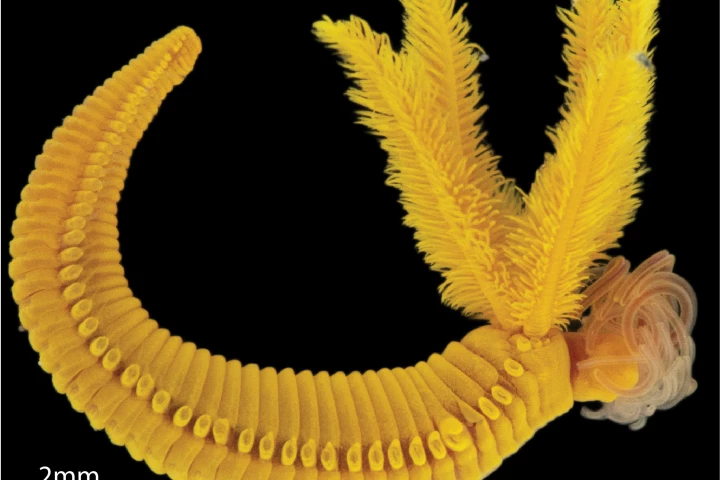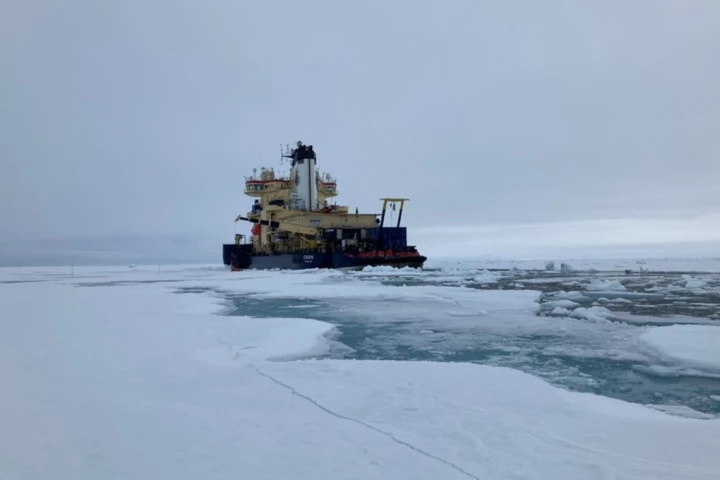Ocean
-
A new study reveals jellyfish not only sleep but do so for the same portion of their day as humans, spending about one-third of the day sleeping. The findings also suggest that sleep evolved way before the brain to help maintain cells under stress.
-
The first ever study to document a direct relationship between earthquake activity at the bottom of the ocean and phytoplankton growth at the surface changes the way scientists in the future will model ecosystems.
-
In the South China Sea, the aqua-colored waters of an expansive shallow reef platform suddenly gives way to a near vertical shaft of vast darkness – an ocean sinkhole almost entirely devoid of oxygen and, in turn, marine life as we know it.
-
A team of Australian bodyboarding ratbags has managed to capture staggering footage of an extraordinary oceanic phenomenon: a place where four 12-ft (3.7-m) waves regularly converge into an oval dip, with explosive results.
-
At the bottom of the ocean, where metal-rich hydrothermal vents exhale poison, a bright yellow worm has mastered an impossible art: turning lethal elements into armor. Meet Paralvinella hessleri, the deep-sea super-worm that turns arsenic into crystal.
-
Nitrogen fixation is a process where certain microbes convert nitrogen gas into ammonium, a form phytoplankton can use. This wasn't thought to happen in the Arctic, but new evidence suggests it might, offering a fresh supply of nitrogen to fuel life.
-
Oceanic manta rays make extreme dives of more than 1,200 meters – three-quarters of a mile – but it's not to feed. Instead, the mantas are calibrating their own kind of Google Maps as soon as they find themselves out beyond the continental shelf.
-
Scientists in China have devised a way to capture carbon dioxide stored in seawater, and convert it into biodegradable plastic precursors. This approach could reduce the acidification effect of CO2 emissions in marine ecosystems, with an added bonus.
-
Later this month, German water sports enthusiast and environmental activist Michael Walther will attempt to cross the Atlantic Ocean on an SUP. If he succeeds, he will be only the second person to ever do so.
-
Dozens of water-harvesting pods are set to be deployed along the sea floor off the coast of California as the United States ramps up its first subsea desalination project. The effort is expected to produce 60 million gallons (227 million liters) of fresh water per day.
-
Scientists have discovered 230 new giant viruses (girus) found to be the unseen engineers of marine ecology, impacting global carbon cycling and energy flow across the world’s oceans.
-
The oceans are losing their light – and with it, possibly their life. A new study reveals more than 20% of the Earth's ocean, an area larger than Asia, has darkened over the last two decades.
Load More











